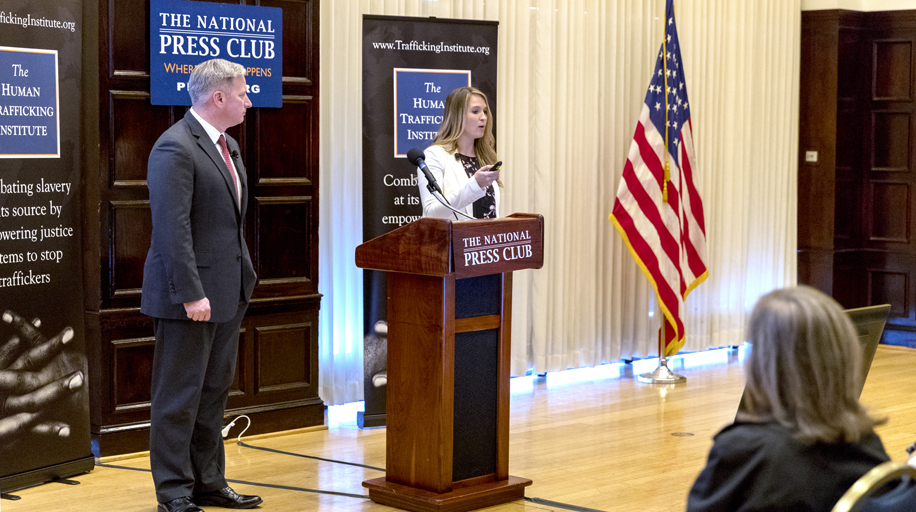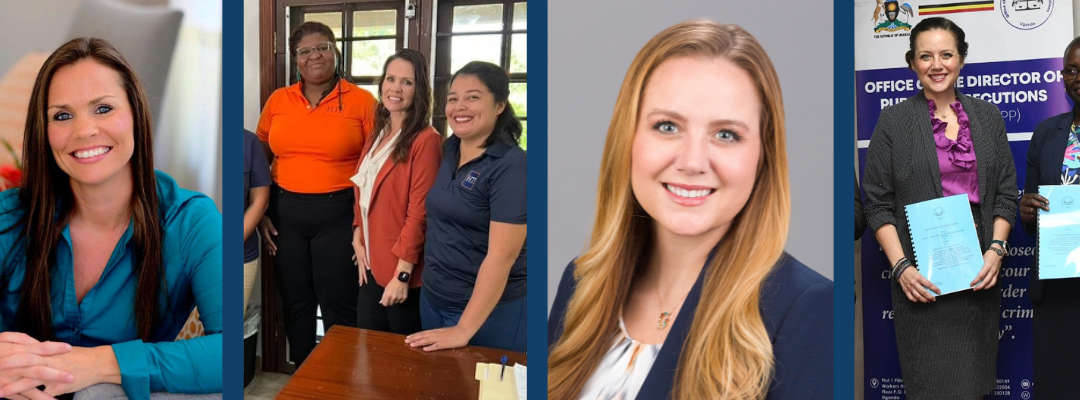WASHINGTON, DC – The first-of-its-kind Federal Human Trafficking Report was released on Wednesday, April 18, at the National Press Club in Washington, D.C. The report, a project of The Human Trafficking Institute, provides an exhaustive account of all the criminal and civil human trafficking cases handled by federal courts during 2017.
Human trafficking is an economically motivated crime where traffickers compel people to work or to engage in commercial sex acts. U.S. federal law criminalizes the trafficker’s exploitive conduct and provides protections for victims. An effective public justice system is an essential part of a victim-centered and trauma-informed approach to handling trafficking cases.
Highlights from the Report:
- In 2017, there were 783 active criminal and civil human trafficking cases involving 1,930 defendants working their way through the federal court system.
- 88.8% of active human trafficking cases were criminal matters and 11.2% were civil suits.
- 695 active criminal human trafficking cases included 6,036 individual federal charges against 1,474 defendants.
- Top 3 Districts by criminal defendants in 2017 active criminal cases were: California Southern (San Diego), Texas Southern (Houston), and Texas Northern (Dallas).
- 230 new criminal human trafficking cases were initiated in 2017: 216 were sex trafficking and 14 were labor trafficking.
- Criminal sex trafficking cases dominated 84.4% of the total federal efforts to combat human trafficking.
- 95.1% of all active criminal trafficking cases are sex trafficking cases. Of these cases, the vast majority of business models involve internet-based commercial sex. Public court documents most frequently listed Backpage.com as the site used to solicit purchasers for sex.
- Top 3 Districts by defendants in 2017 active criminal labor trafficking cases were: New York Eastern (Brooklyn), Pennsylvania Eastern (Harrisburg), and Northern Mariana Islands.
- Labor traffickers most commonly compelled victims to work as domestic servants, in agricultural fields, or in restaurants.
The 2017 Federal Human Trafficking Report’s findings are not a prevalence estimate of trafficking in the United States, but instead serve as an objective summary of what the federal system has done to address human trafficking. The Report does not capture data from state prosecutions, state civil suits, or unreported human trafficking cases.
A team of 12 attorneys and 8 law school students reviewed every human trafficking case in the federal court system in 2017. In addition, court documents, press releases, and news sources were used to gather a comprehensive set of data to include type of trafficking case, business model, age of the victim, and district where the case took place, among others.
The complete report can be downloaded at www.TraffickingMatters.com.
Click here to read about the 2018 Federal Human Trafficking Report.




